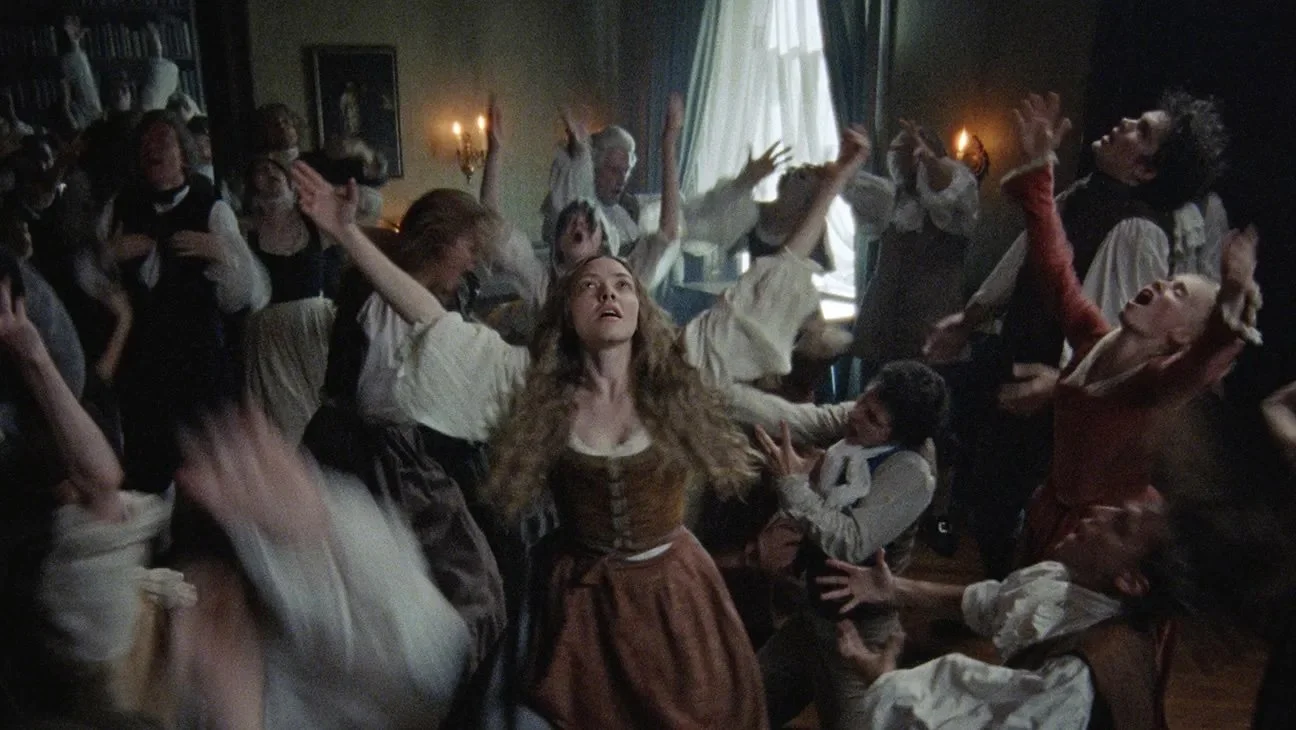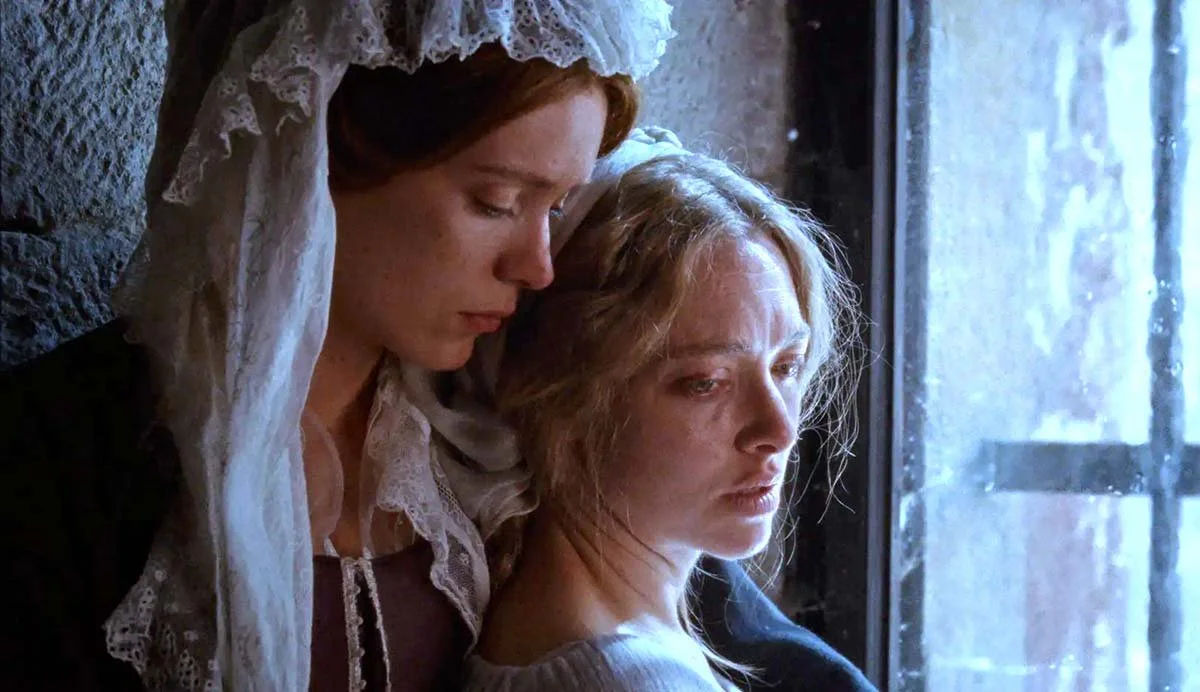'The Testament of Ann Lee' Review: A Religious Pilgrimage of Epic Proportions [TIFF 25]
amanda seyfried shines as religious leader and christ reborn in fastvold’s musical triumph.
During last year’s Toronto International Film Festival, one of the hottest (and hardest to get tickets to) titles was The Brutalist. This epic period drama, directed by Brady Corbet and written by Corbet and his wife, Mona Fastvold, spanned the lifetime of a prominent figure (Adrien Brody as Lászlo Tóth) consumed by his art – his brutalist archicture. One of the strongest parts of this film, among many, was its script, chronicling the intricate fictional history of Tóth. This year, duo Corbet and Fastvold returned to TIFF with a new epic: The Testament of Ann Lee; again, written together, but directed by Fastvold. Akin to The Brutalist, this movie is of epic proportions, retelling the story of Ann Lee (Amanda Seyfried) and her pilgrimage.
The film begins with Ann Lee as a young girl, determined to live righteously and find her place in the religious community. Accompanied by her brother, William (played by Lewis Pullman), she finds her place with a religious sect known as the Shakers – Quakers bursting with song and dance. Here, she makes acquaintance with Abraham (Christopher Abbott), the two marry and, with great effort, try to start a family, albeit with little success. Ann, struggling with grief, is soon consumed with thoughts of God, determined to live a holy existence and suddenly convinced of herself as the female reincarnation of Christ. With this overwhelming dedication to religion, she is overcome with the need to spread her gospel, travelling to New York with a small group of supporters. In a new land, she is exposed to new challenges, and the sacrifices she makes to continue in her leadership are painful. Indeed, her decisions almost appear outlandish at times, but, if nothing else, Ann is committed. With a 130-minute runtime, the film does have a few moments that drag but quickly bounces back; divided into three parts, each titled uniquely for the next chapter of Ann’s life, the story is steady and strong.
The adapted hymns and accompanying movements, choregraphed by Celia Rowlson-Hall (Vox Lux) are seamless and hypnotic, captivating the viewer. Although categorized as a musical, The Testament of Ann Lee’s use of music is natural to the flow of the film; indeed, in one scene, other characters react harshly, trying to shut up the religious followers bursting with song. Often, musicals may struggle to maintain this connection to reality, with musical numbers existing within their own bubble, but this film is able to weave these aspects throughout. Composer Daniel Blumburg, who recently won the Academy Award for Best Original Score (The Brutalist), and Fastvold studied hundreds of Shaker hymns while preparing the script for this film; they chose twelve hymns that were then adapted and arranged for the film by Blumberg, along with three original songs. Incorporating historical truth while maintaining artistic freedom is often a challenging tightrope to walk, but Blumberg successfully creates a musical world in which Ann Lee and her followers exist.
Beyond the musical elements, this film is a sight to behold, with meticulous costume and production design and encapsulating cinematography. The film is an art piece; indeed, although movies can be heralded for entertainment quality, when a film is able to transcend into something lasting like this, it’s an accomplishment for all involved.
Seyfried stuns as Ann Lee, completely coming into the character. Her acting is powerful; convincing the viewer that she is, wholeheartedly, Ann Lee. Ann’s pains and triumphs are her own, and then, they are the viewer’s. Seyfried is well-supported by the rest of the cast; her loyal followers are convincingly genuine. Thomasin McKenzie as Mary, a devout supporter, along with Pullman, lead the band of Shakers under Ann; Abbott, in contrast, follows the group to new America, but brimming with skepticism and a determination of his own. With a vast and full world, the main characters of The Testament of Ann Lee are well-accompanied by a strong and authentic supporting cast.
Although the film focuses on religion, at its core, it represents the lengths one will go to for what they truly believe in, for what they know to be their purpose. Indeed, in Fastvold’s own words, Ann Lee’s “radical pursuit of a self-fashioned utopia speaks to the creative impulse at the heart of all artistic endeavor: the urgent need to shape the world anew.” Even for the areligious viewer, Ann’s passion and fervor are transfixing. Fastvold and Corbet are a dynamic pair, with two artistic epics in back-to-back years. For viewers interested in big and bold films, this is highly recommended, and may, in fact, be one to watch for come awards season.


